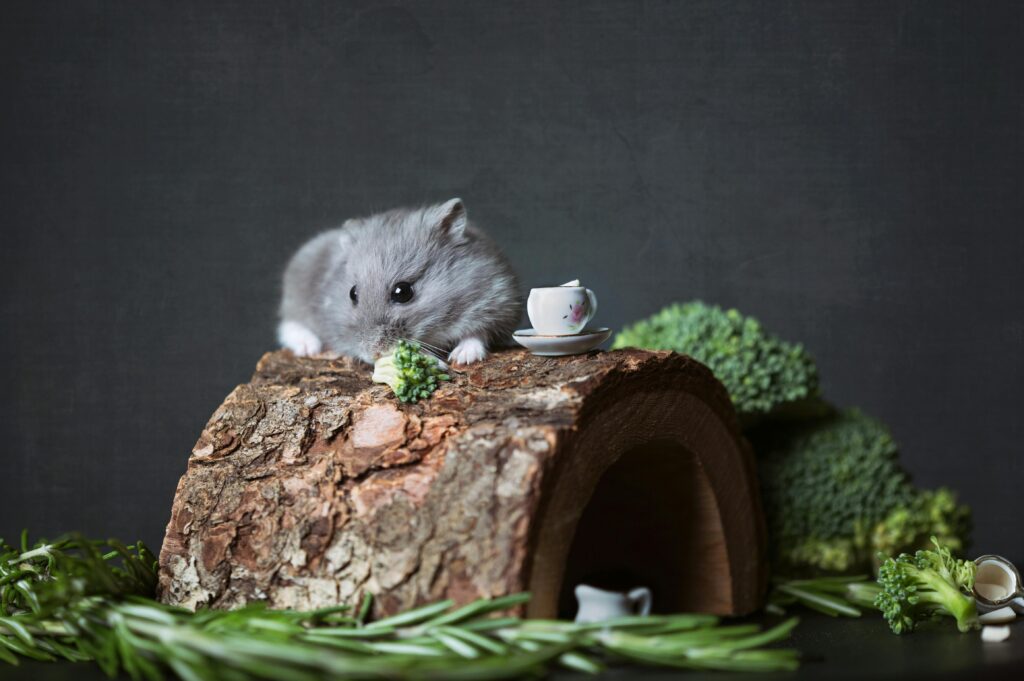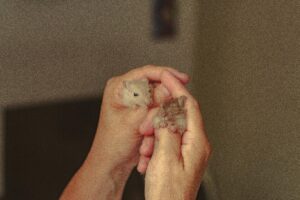
Are you an owner of a delightful Russian hamster? As a pet owner, it is your responsibiity to ensure that your little friend is well cared for and comfortable at all times. Russian hamsters are one of the most popular pet hamsters around and are known for their lively behavior. Russian hamsters need adequate care, and to ensure they stay healthy and happy, you should follow key recommendations for their care.
Understanding Russian Hamsters
Russian hamsters, also known as dwarf or winter white hamsters, are small and gentle rodents native to the steppes of Eastern Europe and Central Asia. They are characterized by their white or gray coloring on their backs, with their faces and bellies being a darker color. They are typically nocturnal and active at dawn and dusk, so they make great pets for people who want a small animal as a companion.
Habitat, Accessories, and Environment
The first step in keeping your Russian hamster well taken care of begins in creating and maintaining an ideal environment for them. The minimum cage size for Russian hamsters is 24 inches by 12 inches, and the cage should be equipped with a solid floor and a good cage lid to ensure the hamster does not escape. The habitat should have good ventilation and a cool, well-lit area of the home, while being away from drafts. Also, provide hamster-safe bedding, such as wood shavings, shredded paper, or purchased bedding.
Your pet hamster should have fun accessories to keep them entertained, such as tunnels, platforms, ladders, and other hamster toys. Additionally, hamsters appreciate having hiding spots for privacy, as well as something to nibble on for their health.
Diet and Feeding Guidelines
An essential part of your hamster’s care is ensuring they enjoy a proper, balanced diet. Commercial pet food for hamsters is available and consists of pellets and granules which are intended to provide the necessary nutrition. Also, offer fresh fruits and vegetables, seeds, and dry legumes as supplements. It is best to avoid letting your hamster eat large amounts of sugary foods, as this can lead to a variety of health problems.
Grooming and Physical Care
Russian hamsters are generally excellent self-groomers and will maintain their fur quality themselves. However, it is important for you to occasionally groom your pet by brushing out their fur using a soft-bristled brush. This is especially essential for long-haired hamsters to avoid mats and tangles. You should also take care to keep their cage clean by washing the cage occasionally, and changing their bedding as required.
Exercise and Mental Stimulation
Ensure your hamster gets plenty of exercise and mental stimulation by providing them with a variety of fun activities and objects. Let your pet out of their cage a few times a week and give them a safe, supervised area to run around in. Also, hamsters enjoy having places to explore such as mazes and burrowing boxes. Investing in a hamster hamstand can also provide sweet entertainment, as Russian hamsters are well-known for their climbing ability.
Health and Veterinary Care
Keeping your Russian hamster healthy and safe should be a top priority. It’s essential to monitor your pet and be aware of any changes in their behavior, as well as eating or drinking habits. Russian hamsters are relatively robust and require little veterinary care, but you should still take your pet to the veterinarian if you notice any unusual symptoms or if you notice a change in their health.
Conclusion
Overall, Russian hamsters are ideal pets because they are tidy, quiet, playful, and low-maintenance. By providing them with the proper environment, companionship, nutrition, and care, you can be sure that your furry friend will stay happy and healthy. We hope that you found these care tips for Russian hamsters useful and encourage you to investigate further to find out more about caring for your little friend.

